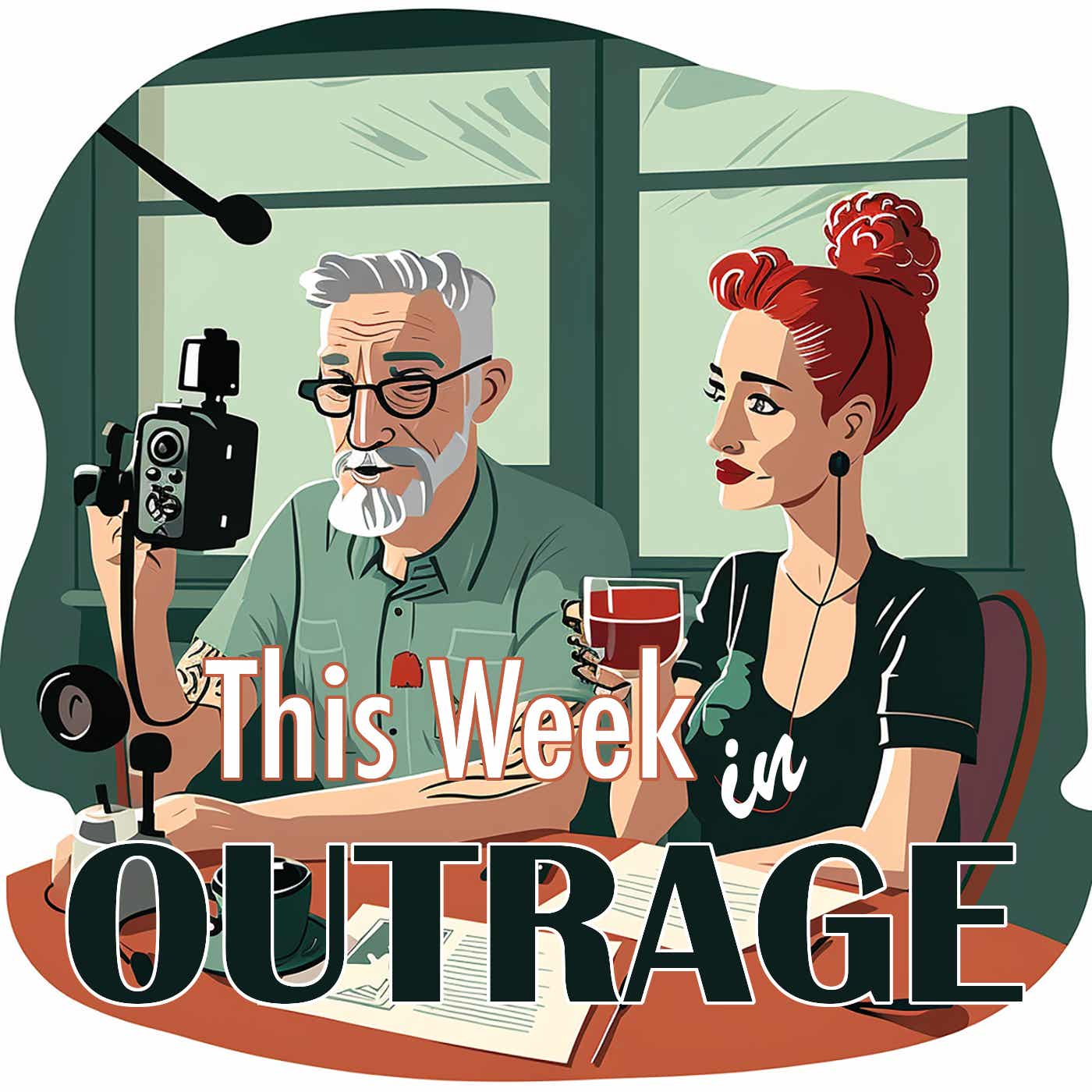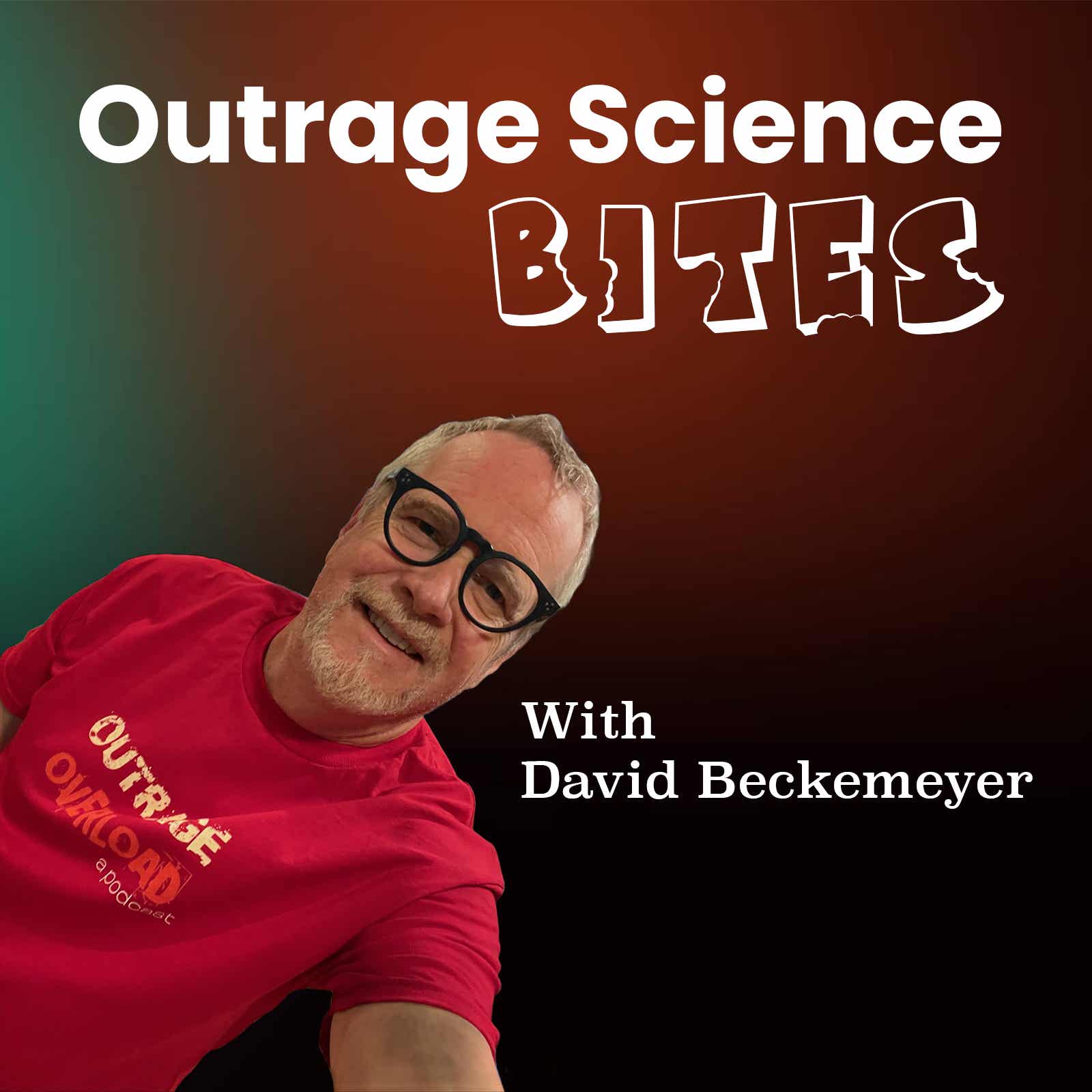
Outrage Overload: Staying grounded through science and balanced perspectives
If you're angry, frustrated, or scared about the state of politics and media and looking for thoughtful, balanced discussions, this podcast is for you. About 30 minutes every few weeks. It will change your life.
Outrage Overload explores the extreme polarization and political bias dominating politics and media today. We dive into the anger and outrage that drive divisions between people, distort the news, and fuel political violence. Each episode features leading scientists, researchers, authors, and community leaders tackling topics like outrage fatigue, toxic polarization, extremism, healthy conflict, disinformation, social media's role in outrage, and the influence of technology and artificial intelligence.
Join us to rediscover humanity in your rivals, improve your mental health, and find practical strategies to feel less stressed and more in control in a world fueled by outrage.
Outrage Overload: Staying grounded through science and balanced perspectives
BONUS - Step one: storm the capitol - Ben Hamilton
Sorry Guys, We Stormed the Capitol – Ben Hamilton
Ben Hamilton is the author of "Sorry Guys, We Stormed the Capitol: Eyewitness Accounts of January 6th." He is the founder of the Chasing History Project, which aims to document controversial events and provide firsthand accounts. Hamilton has a background in history and has conducted extensive interviews with individuals who witnessed the events of January 6th.
Summary: Ben Hamilton discusses his book and the events of January 6th, providing firsthand accounts from individuals who were present. He highlights the difference between a regular Trump event and the atmosphere on that day, noting that the crowd seemed to lose interest in Trump's speech and became focused on the certification of the presidential election. Hamilton emphasizes that the crowd was not an organized insurrection but rather a random group of people with a shared belief that they could stop the certification. He also discusses the shifting narratives and emotions throughout the day, from a sense of victory to defensiveness and blame-shifting.
Key Takeaways:
- The crowd at the Capitol on January 6th was not an organized insurrection but a random group of people with a shared belief that they could stop the certification of the presidential election.
- Trump's speech did not have the same impact on the crowd as previous events, and many attendees left before the march to the Capitol began.
- The lack of leadership and organization within the crowd contributed to the chaotic nature of the events.
- The police response was varied, with some officers appearing sympathetic to the crowd and others attempting to maintain order.
- The narrative among the crowd shifted throughout the day, from a sense of victory to defensiveness and blame-shifting.
Quotes:
- "We need to push our way into the Capitol building and relieve everybody of command." - Interviewee
- "I think a lot of the police were like, 'Okay, sure. We're friends now.' Because that was a way to have some level of control over the people who just trespassed in the fricking Capitol building while Congress was in session." - Ben Hamilton
- "This is our f**king moment. This day on January 6th, 2021, at 2:10 PM, will be remembered in history as the day we had the second American Revolution." - Interviewee
Show Notes:
https://outrageoverload.net/
Follow me, David Beckemeyer, on Twitter @mrblog or email outrageoverload@gmail.com. Follow the show on Twitter @OutrageOverload or Instagram @OutrageOverload. We are also on Facebook /OutrageOverload.
HOTLINE: 925-552-7885
Got a Question, comment or just thoughts you'd like to share? Call the OO hotline and leave a message and you could be featured in an upcoming episode
If you would like to help the show, you can contribute here. Tell everyone you know about the show. That’s the best way to support it.
Rate and Review the show on Podchaser: https://www.podchaser.com/OutrageOverload
Intro music and outro music by Michael Ramir C.
Many thanks to my co-editor and co-director, Austin Chen.




